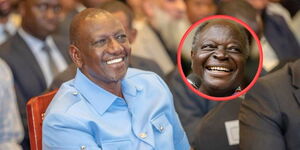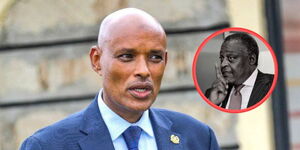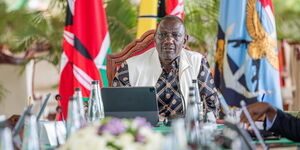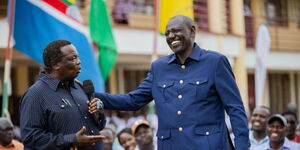Digital Strategist Dennis Itumbi, on Wednesday, February 15, acknowledged that foreign hackers bugged devices used by Kenya Kwanza campaign strategists in the run-up to the General Election.
In a statement shared after the reports surfaced, Itumbi noted that the coalition’s members were aware of the hacking plot.
According to the statement, Itumbi - who was at the core of Kenya Kwanza's campaigns and strategic communication - realised increased activities on his Telegram account, which was rare since he rarely used the platform.
He explained how they hatched a decoy to mislead the hackers in favour of their winning strategy by sharing misleading messages on the infiltrated platforms.
In particular, Itumbi alleged that they staged a conversation discussing the relevance of deploying agents in polling stations, which he noted helped to bait their opponents into a trap.
"To intentionally mislead those who were trying to obtain information illegally, we staged a discussion on agents, saying how unnecessary they were and how costly the exercise was. We even concluded we would not pick agents. Of course in reality, we invested our entire time recruiting agents," Itumbi stated.
International media outlets widely reported reports about the alleged hack on Wednesday, February 15.
According to the reports, the hackers targeted the Gmail and Telegram accounts of persons close to President William Ruto.
On Monday, February 13, the former Prime Minister admitted that his coalition hired information technology (IT) gurus to ethically hack the Independent Electoral and Boundaries Commission (IEBC) systems.
"There is something called ethical hacking - which is done with good intentions. They came with their own machines and they were located in Athi River," Raila stated while speaking in an interview.
IEBC is yet to respond to Odinga's revelations regarding its systems' safety.












